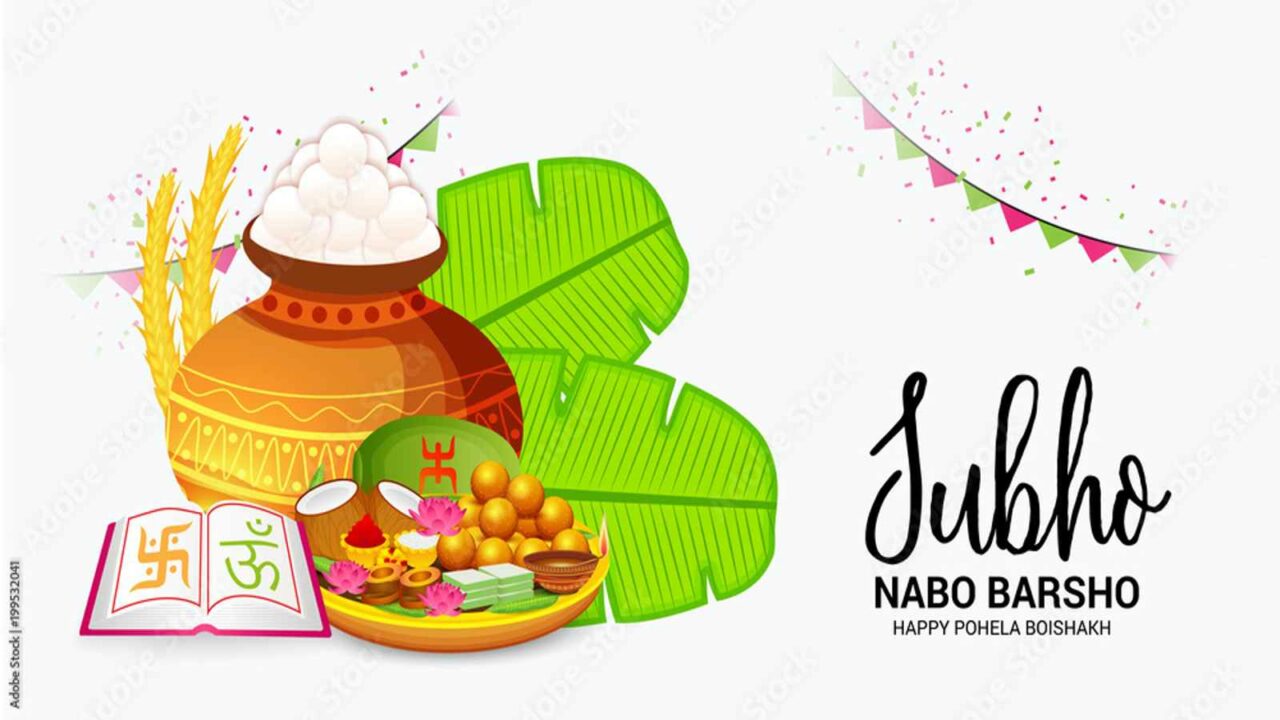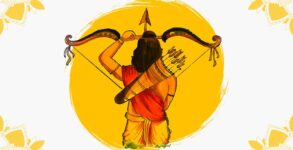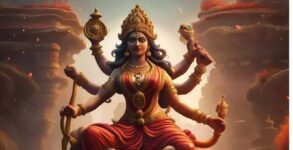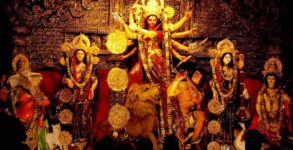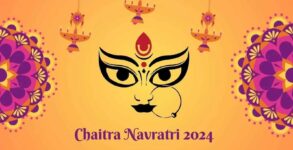Bengali New Year 2023: Pohela Boishakh, also known as Bengali New Year or Nobo Borso, is the first day of the Bengali solar calendar’s Baishakh month. It is one of the most significant Bengali holidays and is celebrated with great grandeur in West Bengal and Bangladesh. Additionally, it is a national holiday in Bangladesh. On this day, people don new clothes, visit temples, consume delectable dishes, and spend time with their loved ones. On this day, Bengalis exchange the phrase Shubho Nabo Barsho, which translates to “Happy New Year.” Throughout West Bengal, numerous festivals and events are organised to commemorate this joyous occasion. Pohela Boishakh coincides with other regional festivals, such as Baisakhi in Punjab, Vishu in Kerala, Puthandu in Tamil Nadu, and Bihu in Assam, which is quite interesting.
When is the Pohela Boishakh Holiday?
As the first day of the Bengali month, Pahela Baisakh is joyfully commemorated on April 14 or 15 across the Indian states of West Bengal, Tripura, Odisha, and Assam. On the fourteenth of April, Bangladesh celebrates Pohela Boisakh, which is a national holiday. Pohela Boisakh is a harvest festival where people celebrate the prosperity and happiness of harvesting produce.
Vishu 2023: Date, history, significance, rituals and celebrations (newsd.in)
Historical Perspective On Bengali New Year
According to the Hijri calendar, agricultural taxes were collected by the Mughals. Due to the lunar nature of the Hijri calendar, it does not coincide with the harvest. Consequently, producers found it difficult to pay taxes during the off-season. The Mughal emperor Akbar ordered a reform of the calendar in order to expedite tax collection. Fatehullah Shirazi, a renowned scholar and astronomer, devised the Bengali year in accordance with the Hijri lunar and Hindu solar calendars. The new agricultural year (Fasli San) was instituted on March 10/11, 1584, but was dated to Akbar’s accession to the throne in 1556. Subsequently, the new year became known as Bônggabdo or Bengali year.
Celebrations:
The celebration of Pohela Boishakh began during the reign of Akbar. It was customary for all debts to be settled on the last day of Choitro. The following day, or the first day of the new year, proprietors would provide sweets for their tenants. This event formerly featured festivals and other celebrations. Eventually, the event became a part of domestic and social life and a day of celebration. The primary event of the day was the opening of a new accounting book, or halkhata. This was an entirely financial transaction. In villages, towns, and cities, merchants and businesspeople closed and opened new account accounts. They used to invite their clients to a gathering where they shared treats and renewed their business relationship. This custom is still observed, particularly by jewellers.
The celebration of Pohela Boishakh began during the reign of Akbar. It was customary for all debts to be settled on the last day of Choitro. The following day, or the first day of the new year, proprietors would provide sweets for their tenants. This event formerly featured festivals and other celebrations. Eventually, the event became a part of domestic and social life and a day of celebration. The primary event of the day was the opening of a new accounting book, or halkhata. This was an entirely financial transaction. In villages, towns, and cities, merchants and businesspeople closed and opened new account accounts. They used to invite their clients to a gathering where they shared treats and renewed their business relationship. This custom is still observed, particularly by jewellers.
Maha Bisuba Pana Sankranti 2023: All about the Odia New Year
The Religious Importance of Pohela Boishakh
People pray to Lord Ganesha and Goddess Laxmi during the harvest festival so that their lives and homes are filled with God’s favours.
On this day, many prayers are recited because people believe that doing so will bring them pleasure, good health, long lives, and ultimately prosperity. After prayers conclude, it is considered an auspicious time to launch new endeavours and even pay off old debts.
They believe that the commencement of each month should be celebrated, and then the entire year will be successful.
Rituals associated with the Bengal New Year
- In the morning, believers begin the day by observing the first rising sun, as they believe it to be auspicious.
- Following this, a religious procession is conducted, which is referred to as Prabhat Pheris. This is definitely worth viewing!
- Women wear Garad sarees, so the attire is one-of-a-kind. These sarees are white with vibrant red borders. Fresh flowers are used to adorn their tresses.
- Women typically wear enormous gold earrings and heavy, predominantly gold jewellery. They appear sophisticated, which is complemented by some white pearls.
- Traditional kurtas and dhotis are predominantly white and worn by men.
- Men don ‘tikka’ obtained from the temple.
- Men and women sing and dance to various traditional folk melodies following the procession.
- In addition to this, the women of the households prepare a lavish brunch. This dish includes rice, fish, green chilies, onions, and a variety of desserts.
- Rangolis are created in the home and occasionally in front of the home, and this tradition continues to this day.
- The remainder of the day is spent visiting relatives and savouring delicious food.
- Evenings on the special day feature dance performances. Folk melodies, skits, and even traditional Bengali theatre can be witnessed in the major cities of Bengal.
Traditions associated with the Bengali New Year
- On this day, if you are in Bengal, you should salute the locals with “Shubho Nabho Barsho,” which means “Happy New Year” in Bengali.
- Pahela Baisakhi is its most prevalent name in Bangladesh.
- This festival has acquired a great deal of popularity in Australia, and if you are in Sydney, you can participate in the Sydney Baisakhi. It is said to have grown tremendously over the past few years and is now an extravagant celebration of colors, traditions, and delectable cuisine.
- If you are out in the markets on this day, you should purchase at as many stores as possible, as items will be on sale at steep discounts.
- This is because they want to sell everything and start a new business when the new year begins in full swing.
- Have you heard of the Boishakhi Mela? During the Bengali New Year, a festival or mela is held in the markets of Sweden, the United Kingdom, and even Australia.

